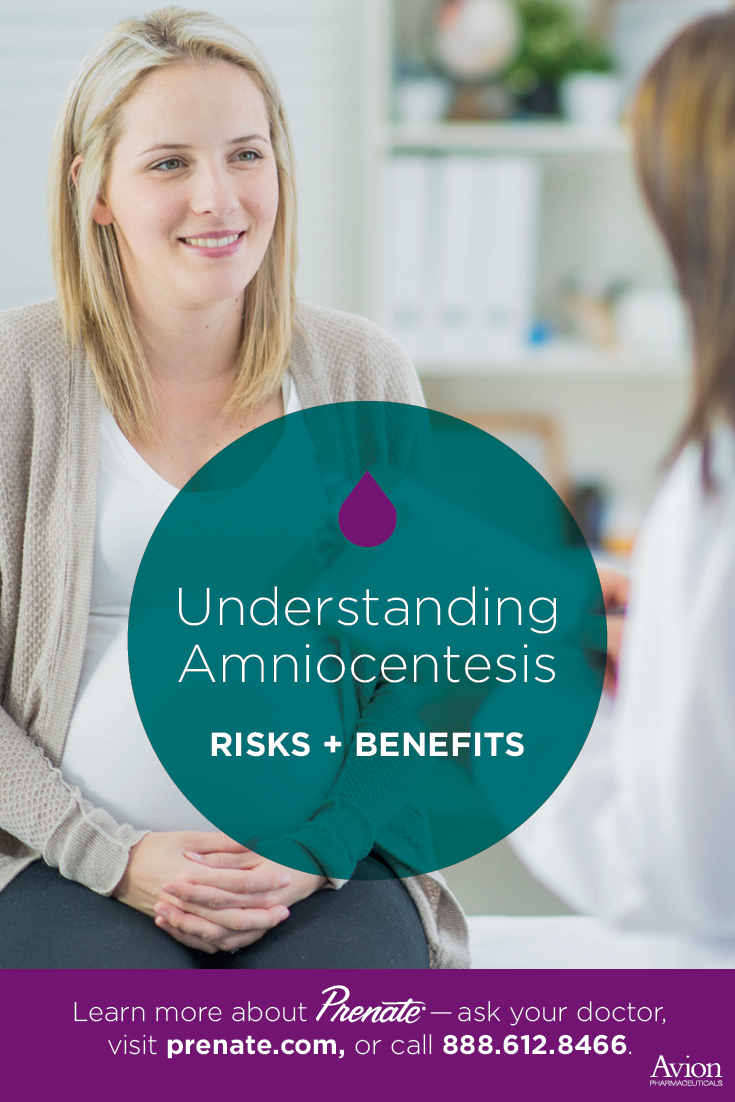Understanding Amniocentesis
July 12, 2020
Amniocentesis is a procedure that may help detect genetic abnormalities in babies before they are born. Although the process is considered safe, there are a few risks associated with amniocentesis. Expecting moms should educate themselves on the risks and benefits of amniocentesis and discuss the options with a healthcare provider.What is Amniocentesis?
Amniocentesis is an invasive procedure in which a healthcare professional takes a sample of the amniotic fluid to test for chromosomal abnormalities, lung maturity, fetal infection, or paternity.1 The procedure is typically done after 15 weeks of gestation and if a mother’s triple test results show an abnormality. A triple test is a non-invasive blood test expecting mothers receive from a medical provider, usually between the 16th week and the 18th week of gestation, to screen for abnormal levels of AFP, hCG, and estriol.3
It is important to remember that the triple test does not diagnose any disorder, but rather screens for potential warning signs that indicate further testing should be done.3
How is Amniocentesis Performed?
Using ultrasound for guidance, a doctor will find a safe place to insert a needle to collect a sample of amniotic fluid (the fluid that surrounds a baby in the womb.) Although the entire process can sometimes take up to 45 minutes, the collection of amniotic fluid only takes about five minutes.1 Although moms may feel some pain during the process, it is generally well tolerated without any anesthesia.2
The amniotic fluid, which contains cells shed from the fetus, is then sent to the laboratory for analysis. The length of time it takes to get the results back can vary from a few days to a few weeks.1
Who Should Get an Amniocentesis?
Amniocentesis is not a required procedure for every expecting mother; however, your doctor may wish to perform an amniocentesis if any of the following statements apply to your situation:4
- You had abnormal results from a triple test or other prenatal screening tests. Amniocentesis can be used to confirm or rule out certain genetic disorders.
- You had chromosomal conditions or neural tube defects in a previous pregnancy.
- You are 35 or older. Babies born to women older than 35 have a higher risk of chromosomal conditions such as Down syndrome.
- You or the baby’s father is a known carrier of a genetic condition, or you have a family history of a specific genetic condition.
- Your ultrasound produced abnormal results.
- Early delivery is being considered to avoid pregnancy complications. Amniocentesis can be used to test a baby’s lung maturity, gauging whether he or she will be able to breathe effectively after early delivery.4
Weighing the Risks and Benefits
If any of the above statements apply to you, an amniocentesis may be highly beneficial in that it can ease anxiety or help you prepare for a baby who may have health or development complications. However, some expecting mothers may choose not to have an amniocentesis, even if the above indicators are present.
Reasons for opting not to have an amniocentesis can vary. Some expecting mothers feel comfortable going forward with a pregnancy regardless of any potential genetic problems; therefore, they don’t see the point in knowing about any problems ahead of time. On the other hand, some expecting mothers have moral, religious, or spiritual beliefs that would eliminate the option of terminating a pregnancy. Finally, some expecting mothers choose to avoid any tests or procedures that pose any risk to the baby. It is a very personal decision. While your doctor can make a recommendation on whether or not to get an amniocentesis, it is ultimately up to you.
The main risk associated with amniocentesis is miscarriage. Miscarriage can occur after amniocentesis due to infection in the uterus, water breaking, or labor being induced prematurely.1
According to the American Pregnancy Association, the risk of miscarriage associated with amniocentesis can range from 1 in 400 to 1 in 200.1 However, other sources report different findings. The AMA Journal of Ethics reports that risk of miscarriage within 14 days after the procedure was 0.6 percent; pregnancy loss before 24 weeks (the point at which a fetus is considered viable) was 0.9 percent; and pregnancy loss at any point following an amniocentesis was 1.9 percent. Authors of the study warned that these figures may underestimate the true added risk of invasive prenatal procedures.2
For expecting mothers who have an infection such as HIV or AIDS, hepatitis B, or hepatitis C, an amniocentesis may not be recommended, as the procedure could potentially pass the infection from the mother to the baby.4
Talk to Your Doctor
It’s normal to feel concerned about the risks of amniocentesis. Speak with your doctor to learn more about the procedure, including the potential risks and benefits. While amniocentesis can provide expecting mothers with peace of mind, it may not be right for everyone.
Prenate® Vitamin Family
This post is sponsored by the Prenate® Vitamin Family, a line of prescription prenatal supplements designed to enhance preconception, prenatal, and postpartum nutrition in women. Talk with your doctor about how taking a daily prescription prenatal or postnatal vitamin could help support a healthy pregnancy and postpartum wellness.
You Are About To Leave This Website
By clicking continue, this link will take you to a website to which Alora Pharmaceuticals Policies & Terms of Use do not apply. Alora and its subsidiaries do not control the content or accuracy of third-party websites and assume no responsibility for their use.
















